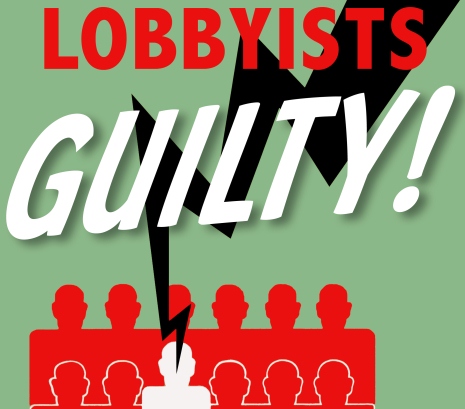
“Laws are like sausages – it is best not to see them being made”; a phrase commonly attributed to Otto von Bismarck seems apt for attempts to reform our archaic libel laws. The last wholesale attempt to get libel law right was in 1843, making Robert Peel our last “libel reforming” prime minister. Depressingly, the sausage cliché is younger than much of the parliamentary law that dictates what we can and can’t say. It’s hard to overstate how chilling to free speech the current law is.
In 2010, President Obama signed into law the US Speech Act protecting Americans from libel judgements made in the high court here. John Whittingdale MP, the chair of the culture, media and sport select committee described this as a “national humiliation”. Our publication rule laughably predates the light bulb, originating in a case won by the notoriously litigious Duke of Brunswick in 1849. Thanks to this case, if you unknowingly copy a libellous statement and publish it on your blog, you could receive a threatening legal letter.
Thankfully, the government will be taking action on “libel tourism” and updating the publication rule for the internet age with the defamation bill that is currently passing through parliament. However, in some ways, the bill is a missed opportunity, with no new public interest defence and no action taken to stop corporations suing individuals.
Getting libel reform right means giving citizens a new public interest defence. Such a defence would have protected libel victims such as Dr Ben Goldacre, Simon Singh and cardiologist Dr Peter Wilmshurst – all of whom were dragged through the courts after writing on important matters of science. A strong public interest defence will protect NGOs and academics from libel actions when they speak out on the dumping of toxic waste by multinational corporations or rampant tax evasion by banks. This defence is crucial – it’s near-impossible for scientists to prove the absolute truth of their research in particular where there are constant breakthroughs in our knowledge.
It’s chilling to think that Wilmshurst was sued for pointing out possible problems with heart devices. In the four years he fought his case, patients continued to have these devices implanted in their hearts. Some then needed extensive surgery to have them removed because of the fault. If his concerns hadn’t been silenced by his four year libel case, doctors may not have recommended this treatment.
A new public interest defence will also protect NGOs and citizen journalists who have got a minor fact wrong, but are willing to correct or clarify it. As it stands, with no new protections, the bill would not have helped many of the cases that spurred 60,000 people to sign the Libel Reform Campaign petition. It was the intention of the government to get this right. Justice minister Lord McNally told Singh at a packed Libel Reform Campaign meeting that he’d be reforming the law so that scientists couldn’t be dragged through the courts again. His hard work on this issue is being undermined by the lack of this defence.
The defamation bill will do little to stop corporations suing individuals. This may be for ideological reasons, but in a globalised world where big corporations increasingly dominate the public space, letting them sue individuals is manifestly unfair. Across parliament, Conservative MPs such as Peter Bottomley and David Davis, Liberal Democrats Tom Brake and Julian Huppert and Labour’s Rob Flello and Paul Farrelly have questioned whether large companies really do need to resort to suing citizens.
With PR teams and laws to stop anti-competitive practices, firms do have alternatives. The law of libel was never originally intended to cover non-natural persons. The law is there to compensate damage to an individual’s reputation and the psychological impact this has. But companies don’t have psychological integrity, ie feelings. Should they get damages for defamation?
A huge effort has gone into the Libel Reform Campaign so far. 60,000 supporters have lobbied their MPs in person, held pub meetings, events in parliament, roundtable discussions with lawyers and international human rights groups, a huge comedy gig in central London with help from 60 civil society organisations. On Wednesday comedians and friends of science Dara O’ Briain, Dave Gorman and Brian Cox will join us in parliament to lobby MPs. It’s not too late for the government to strengthen its defamation bill.
In the meantime, Guardian readers can email their MP to ask them to put pressure on ministers. Wholesale libel reform only comes around every 170 years – anyone who cares about free speech cannot afford to miss this opportunity.
I originally wrote this article for Guardian Law on Wednesday 27 June 2012.
For 70 years American citizens have known what foreign governments are up to in Washington thanks to a lobbyist register: with current lobbying scandals it’s about time we caught up in the UK.
The first lobbying scandal was over 70 years ago. In July 1934, the Special Committee on Un-American Activities reported that Carl Byoir and Associates, one of the founding firms of American public relations, were receiving $6,000 a month to spin for the new Nazi government of Germany. Byoir’s distribution of anti-Semitic literature and the sheer scale of the money involved scandalised congressmen, whose earnings of $9,000 a year paled in comparison. In 1938, the US Congress passed the Foreign Agents Registration Act (FARA) which required “public disclosure by persons engaging in propaganda activities and other activities for or on behalf of foreign governments, foreign political parties, and other foreign principals.” FARA has given us a fascinating snapshot of historic lobbying. In 1942, Britain spent more than the rest of the world combined on lobbying and propaganda activities in the US – a huge $1,350,000.
What Americans have known for 70 years, Britons are still to discover. The activities of foreign governments and their proxies in the UK are entirely unregulated. As a free speech charity, you may not expect Index on
Censorship to be particularly concerned about lobbyists – a group of people whose job it is to argue a point. Yet their work is critically undermining the work of international organisations that campaign for human rights, by airbrushing the worst excesses of autocratic regimes.
Whilst we treat MPs to the occasional cup of tea, foreign governments are paying for British MPs to enjoy five-star accommodation on trips euphemistically called “fact-finding missions”. The same regimes hire parliamentarians whom the electorate have booted out, on large salaries, to lobby their former colleagues. NGOs cannot compete. The six-figure salaries regularly used by lobbying firms to gain access to parliamentarians across Europe are impossible for us to match. The degeneracy of the lobbying trade is often staggering. Since we began our campaign on this issue, we’ve been approached behind the scenes; one young lobbyist told us that the worse the client, the more fun it becomes. Lobbying is often dull work, dealing with the minutiae of lightbulb regulations: at least working for a foreign regime is intellectually challenging. Another told us that one lobbying firm was prepared to take on Gadaffi’s regime as a client. That is, until the go-between wanted a cut of the contract in cash, in a suitcase.
Whereas once authoritarian regimes would have used their foreign ministries to spin their message, these governments now want the best PR and lobbying teams money can buy. London is at the centre of this trade, with, in recent years, Azerbaijan, Belarus, Kazakhstan, Russia, Sri Lanka, Bahrain, Mubarak’s Egypt, Saudi Arabia and others leading their lobbying operations from our capital. Whereas Potomac Square Group, a US lobbying firm working for the autocratic government of Bahrain, has to declare their monthly $20,000 retainer, London’s Bell Pottinger’s contract (in part suspended) does not. The US firm also has to declare the correspondence it has with US politicians – while lobbyists working on behalf of autocratic foreign
governments can persuade our MPs without declaring a thing. Recently, Index
pointed out that all but one of the main sponsors of a Parliamentary Early Day Motion praising Azerbaijan’s independence (with no mention of the country’s poor human rights record) had enjoyed a trip to the country including accommodation in luxury hotels costing £3,500.
The opaque lobbying of MPs on behalf of foreign governments is corrupting our politics. While in opposition, both Coalition partners made welcome noises on regulating lobbying – but campaigners weren’t inspired with confidence when the civil servant in charge of regulating the industry tweeted that she hoped one of the campaigns, Unlock Democracy, “would die. I am prepared to help it along.” While she met with representatives of the lobbying industry on four separate occasions, she refused to meet campaigners calling for reform. The political reform minister Mark Harper’s assertions that all parties are being treated equally is harder to swallow in light of the recent “cash for access” allegations. And the government’s consultation on a statutory register of lobbyists doesn’t even consider the option of FARA-style regulations. If the Coalition seriously wants to clean up British politics, and stop London’s reputation as the international capital of spin for despots, it needs to implement its own FARA.
This article was originally published in the Daily Telegraph on 10 April.

A review of my talk on twitter and charity campaigning at the journalism.co.uk News:Rewired conference , which is also covered by journalist Jon Slattery on his blog.


This article was originally published by Dissent on their excellent Arguing the World website.
Content creators haven’t had it easy in the last few years. The almost endless expansion of the Internet’s capacity to move content—first copyrighted text, then images, audio, and video—has fundamentally undermined the pay model of those who produce content. So the lobbying for draconian measures to protect traditional notions of copyright in Britain’s Digital Economy Act has been intense.
Lobbyists told politicians that:
British musicians, singers, actors, writers and directors are known and loved around the world and create some of our greatest assets. Together they contribute more that 7 percent to the UK economy.
The Digital Economy Bill brings both of these together. It will ensure that British creators, entertainment companies and the 1.8 million people who work in and around the cultural sector are respected and rewarded in the future as they have been in the past, and that they are fairly paid when they put their work online.
The lobbyists won. The Digital Economy Bill that was rushed through Parliament contained controversial clauses that potentially allowed “a three strikes and you’re out” rule that would block access to the Internet for users who are alleged by content creators to have downloaded or shared copyrighted material.
Although the specific clause that allowed for disconnecting a user’s access to the Internet did not pass (though the government intends to bring this back to Parliament after the election on May 6), the UK’s communications regulator (known as Ofcom) will still be able to order Internet service providers (ISPs) to sanction speed blocks, bandwidth shaping, site blocking, account suspension, and other limits against an ISP customer accused of downloading copyrighted material.
While content creators have every right to defend their material, the provisions in the Digital Britain Bill are arguably an extremely authoritarian way of going about this. The Courts will not decide whether an individual should be barred from having an Internet connection—but a tribunal panel at Ofcom. And if individuals appeal, they will shoulder one third of the costs of such an appeal without recourse to legal aid. As a result, it will only be a matter of time before national newspapers will carry stories of poor disabled people on council estates facing disconnection from the outside world—and with no money to appeal such a decision.
If you think this only affects Internet users in Britain, think again. As with so much illiberal legislation, once mandated in one country, it begins to creep abroad. As Ian Brown, of the Oxford Internet Institute writes in the latest edition of the Index on Censorship magazine: “The European Commission has been secretly negotiating a new anti-counterfeiting treaty with the US, Japan and other developed nations that would mandate a three strikes policy.”
THE DIGITAL Economy Bill also contains clauses that allows a secretary of state, by order, to apply technical measures (as described above) against any user for any reason—for example, a political or religious Web site considered extreme by the government of the day.
In 2008, the former Home Secretary Jacqui Smith told BBC Radio 4:
We need to work with internet service providers, we need to actually use some of the lessons we’ve learned, for example about how to protect children from paedophiles and grooming on the internet to inform the way in which we use it to prevent violent extremisms and to tackle terrorism as well.
In the event of another homegrown terrorist attack on UK soil, amending the Digital Economy Act to give a secretary of state the power to ban any website he or she chooses would be entirely possible under existing clauses of the act. At most it would require a “statutory instrument,” a type of mini-bill, that doesn’t need to be voted through Parliament but instead is voted through “on the nod” by a small Committee of MPs (this is how government Whips almost always get their way by convention).
The Digital Economy Bill passed through Parliament with almost no debate. Tom Watson MP, a close ally of the Prime Minister Gordon Brown, was moved to rebel against his party. With legislation now at European level and the possibility of this legislation creeping abroad, what happens next? Ian Brown suggests it’s not over yet:
The House of Commons may have rushed through the Digital Economy Act with minimal scrutiny, but I think public protest over its far-ranging provisions is just warming up. Most of the UK’s 50m Internet users are only just hearing about this threat to their ability to work, learn and express themselves online.
The Internet’s democratic potential will be damaged by powers in the Act for users to be disconnected and websites to be blocked. But in the meantime, the tens of thousands of citizens who complained about the lack of debate to their MPs will be thinking about next month’s general election. Voters have an ideal opportunity to favour candidates that support freedom of expression and promise to block the secondary legislation that is still needed in the next Parliament to bring many of the Act’s provisions into force.